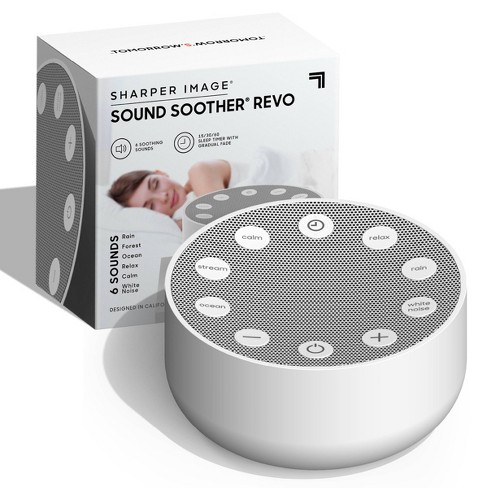Reliable Therapy Solutions for Managing Rest Disorders and Enhancing Peaceful Sleep
In the realm of healthcare, the monitoring of rest conditions and the mission for relaxing rest are crucial parts of general health. Reliable therapy solutions supply a diverse technique to tackle these challenges, varying from cognitive behavior treatments to alternative methods that promote leisure and mindfulness. The expedition of numerous approaches, consisting of the integration of medication and light treatment, opens up a world of possibilities in the search of much better sleep top quality. As we browse the complex landscape of rest conditions and look for to boost our rest experience, a deeper understanding of these therapy options may hold the secret to opening a much more rejuvenating and satisfying corrective journey.
Cognitive Behavior Therapy for Sleep Problems (CBT-I)
Cognitive Behavior Modification for Sleeping Disorders (CBT-I) is a structured, evidence-based therapy approach that concentrates on attending to the hidden variables contributing to rest disruptions. This kind of treatment aims to customize habits and thoughts that intensify sleeping disorders, ultimately promoting healthy sleep patterns. CBT-I typically involves several essential parts, consisting of cognitive treatment, rest restriction, stimulus control, and sleep hygiene education.
Cognitive treatment helps individuals identify and alter unfavorable thought patterns and beliefs regarding rest that might be impeding their capability to fall or stay asleep. Sleep limitation involves restricting the amount of time spent in bed to match the person's real rest duration, therefore raising rest efficiency (insomnia specialist). Stimulus control methods assist develop a strong organization in between the bed and rest by motivating individuals to go to bed just when drowsy and to prevent taking part in stimulating activities in bed
In addition, rest hygiene education and learning concentrates on establishing healthy rest behaviors, such as keeping a constant rest timetable, developing a relaxing bedtime regimen, and enhancing the sleep atmosphere. By resolving these elements thoroughly, CBT-I offers a reliable non-pharmacological intervention for taking care of insomnia and boosting overall sleep quality.
Rest Health Practices
Having developed the foundation of cognitive restructuring and behavior adjustments in dealing with insomnia via Cognitive Behavioral Treatment for Sleeping Disorders (CBT-I), the emphasis now shifts in the direction of checking out vital Sleep Health Practices for maintaining ideal rest high quality and total well-being.
Rest hygiene techniques encompass an array of practices and environmental aspects that can considerably impact one's ability to drop off to sleep and stay asleep throughout the night. Constant sleep and wake times, developing a relaxing bedtime routine, and enhancing the sleep setting by maintaining it dark, quiet, and cool are critical components of great rest health. Restricting exposure to screens before bedtime, staying clear of energizers like high levels of caffeine close to going to bed, and participating in regular exercise throughout the day can also promote much better rest quality.
In addition, practicing leisure methods such as deep breathing exercises or reflection prior to bed can aid relax the mind and prepare the body for rest. By incorporating these rest hygiene practices right into one's daily routine, individuals can develop Website a healthy and balanced rest pattern that supports relaxed sleep and overall well-being.
Leisure Methods and Mindfulness
Executing leisure techniques and mindfulness techniques can play a crucial duty in promoting a sense of calm and advertising high quality sleep. insomnia specialist. These techniques intend to peaceful the mind, reduce tension, and develop an optimum environment for peaceful sleep. One widely exercised technique is deep breathing workouts, where individuals focus on slow, deep breaths to loosen up the mind and body. Dynamic muscular tissue relaxation entails tensing and then launching each muscle group, promoting physical relaxation. In addition, directed imagery can aid deliver individuals to a serene place in their minds, aiding in stress decrease and improving rest top quality.
By incorporating these techniques right into a bedtime regimen, individuals can signify to their bodies that it is time to take a break and prepare for sleep. In general, incorporating relaxation techniques and mindfulness methods can considerably contribute to taking care of sleep conditions and enhancing overall rest quality.

Medicine Options for Rest Disorders
After exploring relaxation strategies and mindfulness practices as non-pharmacological interventions for improving sleep top quality, it is necessary to take into consideration medication options for individuals with sleep problems. In situations where lifestyle changes and therapy do not offer sufficient alleviation, medicine can be a beneficial device in managing sleep disturbances.
Frequently recommended medications for sleep disorders include benzodiazepines, non-benzodiazepine hypnotics, antidepressants, and melatonin receptor agonists. Antidepressants, such as trazodone, can be valuable for people with co-occurring depression and sleep disruptions - insomnia counseling.
It is important for individuals to speak with a doctor to figure out the most suitable drug choice based on their particular sleep disorder and case history.
Light Treatment for Circadian Rhythm Law
Light therapy, likewise recognized as photo-therapy, is a non-invasive treatment technique used to regulate body clocks and enhance sleep-wake cycles. This therapy entails exposure to brilliant light that simulates natural sunshine, which helps to reset the body's body clock. By revealing people to particular wavelengths look at this site of light, usually in the morning or night depending upon the desired result, light therapy can effectively change the circadian rhythm to promote wakefulness throughout the day and improve restful sleep during the night.
Research has revealed that light therapy can be especially advantageous for individuals with circadian rhythm problems, link such as delayed rest stage disorder or jet lag. It can likewise be valuable for those experiencing seasonal affective disorder (SAD), a sort of anxiety that generally occurs throughout the wintertime months when natural light exposure is minimized. Light treatment is typically well-tolerated and can be made use of combined with other therapy approaches for sleep disorders to enhance outcomes and improve total rest top quality.
Final Thought
To conclude, efficient treatment solutions for taking care of rest problems and improving relaxing sleep include Cognitive Behavior modification for Sleeplessness (CBT-I), sleep health methods, relaxation techniques and mindfulness, drug alternatives, and light treatment for circadian rhythm policy. These strategies can aid individuals improve their rest high quality and total wellness. It is crucial to talk to a medical care company to establish the most ideal method for resolving rest concerns.
As we navigate the complex landscape of sleep problems and seek to enhance our rest experience, a much deeper understanding of these therapy services might hold the secret to opening a much more refreshing and meeting restorative trip.
Rest limitation involves limiting the quantity of time invested in bed to match the individual's real sleep period, therefore increasing sleep effectiveness. Regular rest and wake times, developing a relaxing going to bed regimen, and maximizing the rest atmosphere by maintaining it dark, peaceful, and cool are important components of great sleep health. Light therapy is normally well-tolerated and can be utilized in combination with other therapy techniques for sleep disorders to optimize end results and boost overall sleep high quality.
